I remember the first time I watched Game of Thrones and realized I wasn’t just following one character’s journey – I was tracking multiple families, each with their own agendas, secrets, and conflicts. That web of interconnected yet separate storylines kept me glued to the screen in a way that single-narrative shows never could.
Turns out there’s actual research that explains why shows like this hook us so hard. When stories have multiple groups of characters doing their own thing – but occasionally crossing paths – we can’t look away. According to StoryFit’s research on character interactions in drama, complexity boosts drama performance, with fragmented character groups favorably impacting viewership and ratings regardless of format, runtime, or budget. Source: StoryFit Character Interactions Impact Drama Success
Table of Contents
-
Essential Considerations for Selecting Drama Stories
-
Narrative Depth and Emotional Resonance
-
Contemporary Relevance
-
Character Development Arc
-
Conflict Structure and Stakes
-
Thematic Coherence
-
Accessibility and Audience Appeal
-
-
Why Drama Stories Dominate Modern Entertainment
-
Character Network Complexity: The Secret to Drama Success
-
Contemporary Social Drama Stories (5 stories)
-
Family Drama Stories (5 stories)
-
Workplace/Professional Drama Stories (4 stories)
-
Personal Crisis Drama Stories (4 stories)
-
Historical/Period Drama Stories (4 stories)
-
Psychological Drama Stories (3 stories)
-
Detailed Analysis and Examples
-
Application of Selection Criteria
-
Real-World Applications for Content Creators
-
How Nairrate Can Transform Your Drama Storytelling
TL;DR
-
Great drama stories need six things: emotional depth, relevance to what’s happening now, characters who actually grow, conflicts that matter, themes that don’t feel forced, and stories regular people can connect with
-
Social dramas about stuff like digital divides and gentrification hit hardest because they’re literally happening in our neighborhoods right now
-
Family dramas work because we’ve all got that one relative who could inspire a whole Netflix series
-
Workplace dramas resonate because we spend more time with coworkers than family – and office politics can get intense
-
Personal crisis stories about medical scares and life-changing accidents make us ugly-cry because they tap into our deepest fears
-
Historical dramas help us realize humans have always been messy and complicated – which is oddly comforting
-
Psychological dramas mess with your head in the best way, like finishing a book that you think about for weeks
-
Multiple character groups that occasionally cross paths create that “can’t look away” feeling that keeps us binge-watching
Essential Considerations for Selecting Drama Stories
After years of analyzing what makes some stories stick with you for years while others disappear from memory by next Tuesday, I’ve figured out there are six things that separate the unforgettable from the forgettable. These aren’t fancy academic theories – they’re the practical stuff that determines whether your audience will actually care about your characters.
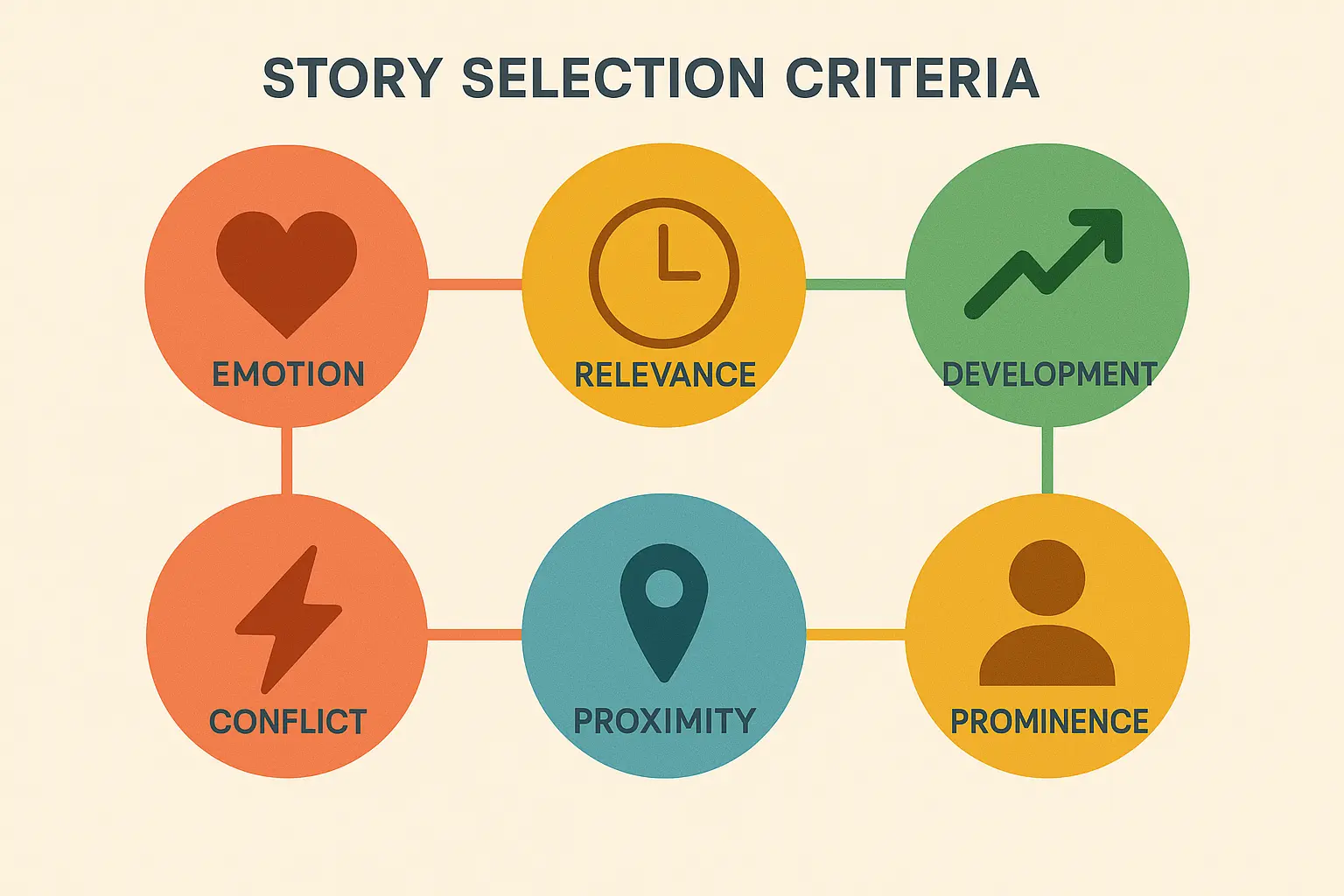
|
Criteria |
Key Questions |
Success Indicators |
|---|---|---|
|
Narrative Depth |
Does this story make me actually care about these people? |
You find yourself thinking about the characters when you’re not watching |
|
Contemporary Relevance |
Is this something I’m dealing with or worried about right now? |
The story feels like it’s speaking directly to your current life |
|
Character Development |
Do these people actually change, or just go through the motions? |
Character growth feels earned, not forced |
|
Conflict Structure |
Are there real stakes, or just manufactured drama? |
Multiple layers of tension that feel authentic |
|
Thematic Coherence |
Do the big ideas feel natural or preachy? |
Themes emerge from the story, not the other way around |
|
Accessibility |
Can different types of people connect with this? |
Complex enough to be interesting, simple enough to follow |
Narrative Depth and Emotional Resonance
Here’s the thing – if I don’t care about your characters within the first few scenes, I’m probably not going to stick around. The best drama stories create those moments where you find yourself genuinely worried about fictional people, like when you catch yourself yelling “Don’t go in there!” at your TV screen.
Understanding the fundamentals of how to write a story becomes crucial when developing these emotional connections, as brain science reveals how audiences process dramatic narratives.
Contemporary Relevance
Your story doesn’t have to be ripped from today’s headlines, but it should feel like it understands what’s keeping people up at night. Whether it’s worrying about aging parents, dealing with economic stress, or just trying to figure out how to raise kids in a complicated world – the best dramas tap into those universal anxieties we’re all carrying around.
Character Development Arc
Nobody wants to watch people who are exactly the same at the end as they were at the beginning. But here’s the catch – character growth has to feel like something that could actually happen to a real person. We’ve all seen those movies where someone has a life-changing revelation in the last ten minutes that feels completely unearned.
Conflict Structure and Stakes
Real drama comes from real stakes. Not just “will they save the world” stakes, but “will this family survive this crisis” stakes. The most compelling conflicts happen on multiple levels – what’s happening inside someone’s head, what’s happening between people who care about each other, and what’s happening in the bigger world around them.
Thematic Coherence
Nobody likes being lectured, even when they agree with the message. The best drama stories let their themes emerge naturally from what’s happening to the characters. When a story has something important to say, it says it through action and consequence, not through characters making speeches.
Examining story theme examples demonstrates how successful dramatic stories integrate themes naturally without overwhelming the story’s emotional core.
Accessibility and Audience Appeal
Here’s the balancing act: your story needs to be smart enough to respect your audience’s intelligence, but not so complicated that people need a flowchart to follow along. The best dramas work on multiple levels – you can enjoy them for the surface story, but there’s always more there if you want to dig deeper.
Why Drama Stories Dominate Modern Entertainment
Drama has basically taken over streaming platforms, accounting for 45% of catalog duration and representing 15 of the top 20 streaming series in the U.S. But here’s what’s really interesting – it’s not just that there’s more drama content, it’s that drama works differently in our brains than other genres.
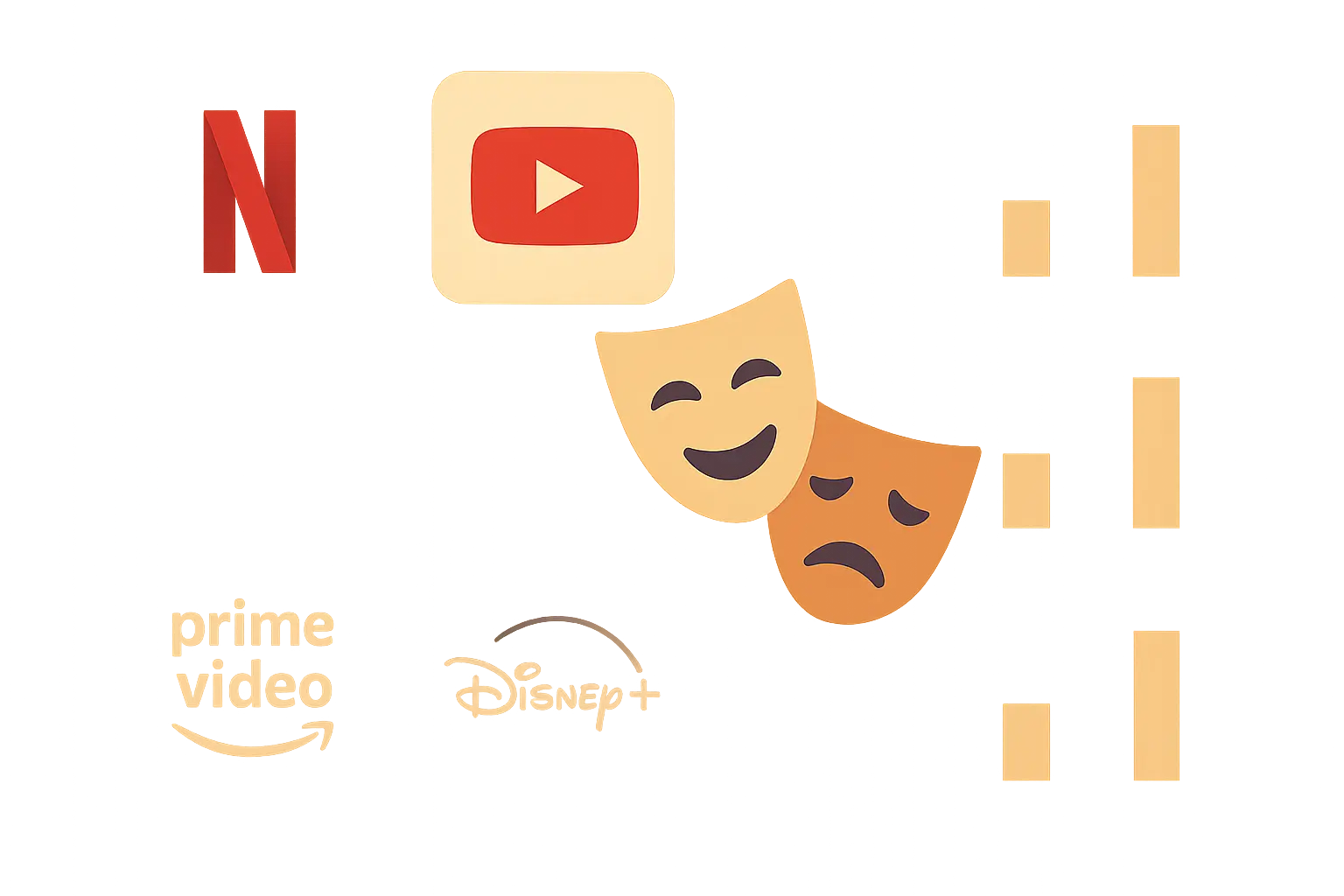
The Psychology Behind Drama’s Appeal
You know that feeling when you finish watching a really good dramatic episode and you immediately want to talk to someone about it? That’s because drama hits different psychological buttons than comedy or action. We don’t judge drama by whether it’s “fun” – we judge it by whether it made us think or feel something important.
Take Breaking Bad – nobody was tuning in because meth cooking looked like a good time. We watched because Walter White’s moral transformation was like a slow-motion car crash we couldn’t look away from. People were still debating his choices years after the show ended, which tells you everything about why drama sticks with us.
Streaming Platforms Drive Drama Demand
The shift to streaming has been perfect for drama because these platforms need content that keeps people subscribed month after month. Unlike movies, where you judge success by opening weekend, streaming success is all about whether people stick around for the next episode. And nothing creates that “just one more episode” feeling quite like unresolved dramatic tension.
Character Network Complexity: The Secret to Drama Success
Here’s where it gets really interesting – research shows that drama stories with multiple groups of characters who mostly stay in their own lanes (but occasionally cross paths) consistently get higher ratings and more viewers. This works regardless of budget or runtime, which suggests that complexity itself is what we’re craving.
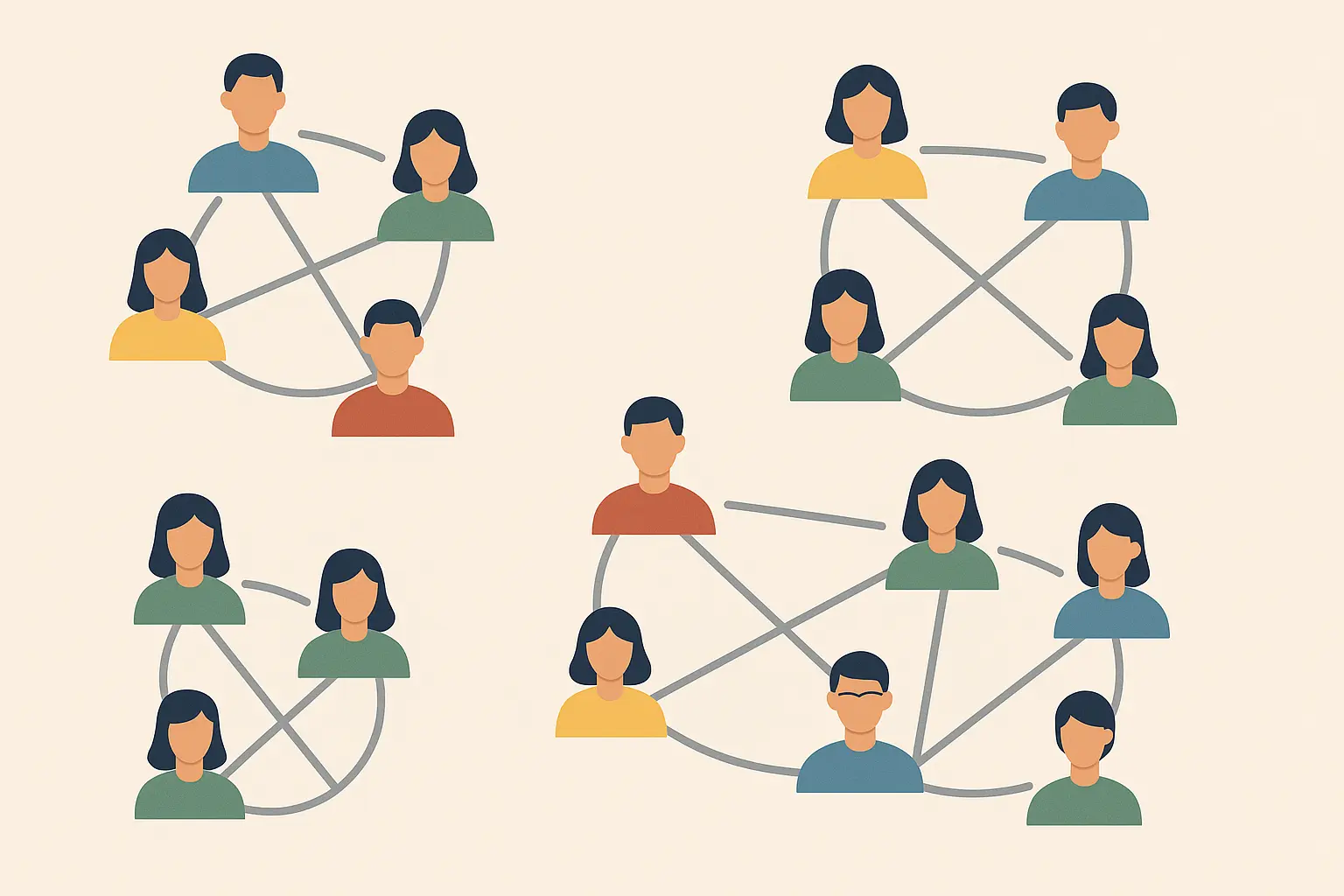
Understanding Network Components in Storytelling
Think of it like this – it’s all the different ways a story can tug at your heartstrings or drop hints about what’s coming next. You know how in your favorite shows, there’s always that moment when two storylines you thought were totally separate suddenly connect? That’s what keeps us coming back for more. It’s like solving a puzzle, except the pieces are people and their messy lives.
|
Drama Series |
Network Components |
Impact on Storytelling |
|---|---|---|
|
Game of Thrones |
Multiple families/houses with separate storylines |
Creates anticipation for convergence, maintains multiple tension points |
|
The Godfather Part II |
Past and present timelines with different character groups |
Provides historical context while advancing present narrative |
|
Lost |
Island survivors, flashback characters, flash-forward groups |
Builds mystery through fragmented information revelation |
|
The Wire |
Police, street dealers, politicians, dock workers, schools |
Explores systemic issues through multiple institutional perspectives |
|
Stranger Things |
Adult investigators, teenage heroes, government agents |
Appeals to different demographics while maintaining unified threat |
The Creative Challenge of Multiple Components
Here’s the catch – creating multiple character groups is hard work. Writers have to juggle way more moving parts, and everything has to feel connected to the main story. You can’t just throw in random characters and call it complexity. But when it’s done right, that extra effort shows up in every aspect of the script, making the whole thing more engaging.
Contemporary Social Drama Stories
Let’s talk about the stuff that’s probably keeping you up at night – or at least making you scroll through social media with a frown. These stories dig into the real problems we’re all dealing with right now, from trying to keep up with technology to watching our neighborhoods change beyond recognition.
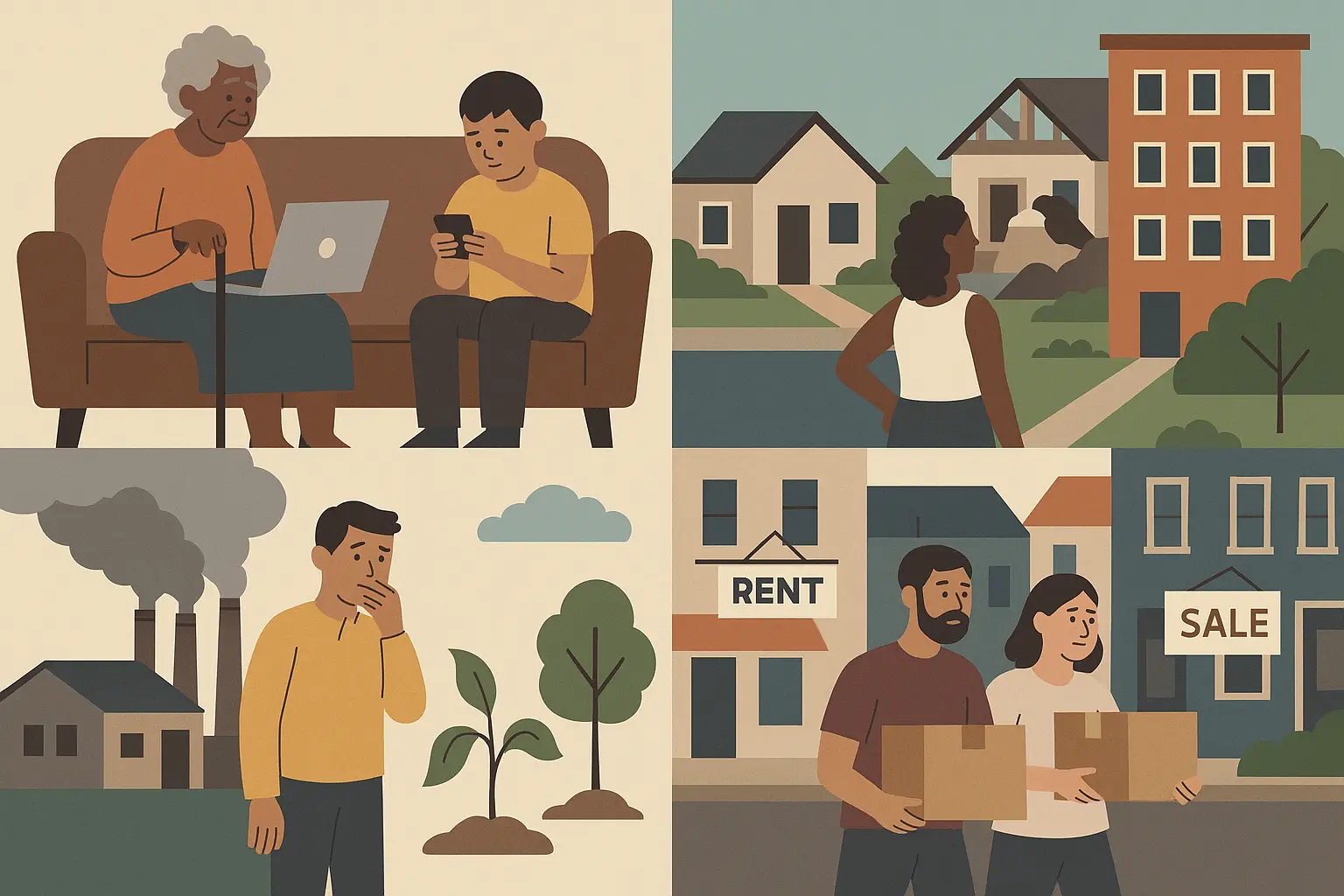
1. The Digital Divide
Remember when COVID hit and suddenly every parent became a part-time IT support person? Now imagine trying to help your kid with online school when you can barely afford groceries, let alone a decent laptop. This story follows a single mom juggling multiple jobs while watching her teenager fall behind because their internet keeps cutting out during virtual classes.
2. Last Call
Ever wonder what happens to that neighborhood bar that’s been around forever when the fancy coffee shops move in? This story follows an aging bartender whose family has run the same establishment for 50 years, watching his community disappear one craft cocktail place at a time.
3. The Caregiver’s Burden
If you’re in your 40s or 50s, you probably know this story intimately – trying to take care of aging parents while still raising your own kids and maintaining some semblance of a career. It’s the emotional exhaustion nobody talks about, watching someone you love slowly disappear while everyone expects you to hold it together.
4. Second Chances
What happens after someone gets out of prison and actually wants to rebuild their life? This story explores the catch-22 of needing a job to get housing and needing housing to get a job, all while dealing with the sideways looks and closed doors that come with a criminal record.
5. The Climate Refugee
Climate change isn’t just polar bears and melting ice caps – it’s families losing everything to floods, fires, and storms, then trying to start over somewhere that doesn’t necessarily want them. This story follows one family’s attempt to rebuild while facing the reality that “home” might not exist anymore.
Family Drama Stories
Family drama hits different because, let’s face it, we’ve all got that one relative who could be the inspiration for a whole Netflix series. These stories get into the nitty-gritty of what happens when family gatherings go sideways and old wounds get reopened.
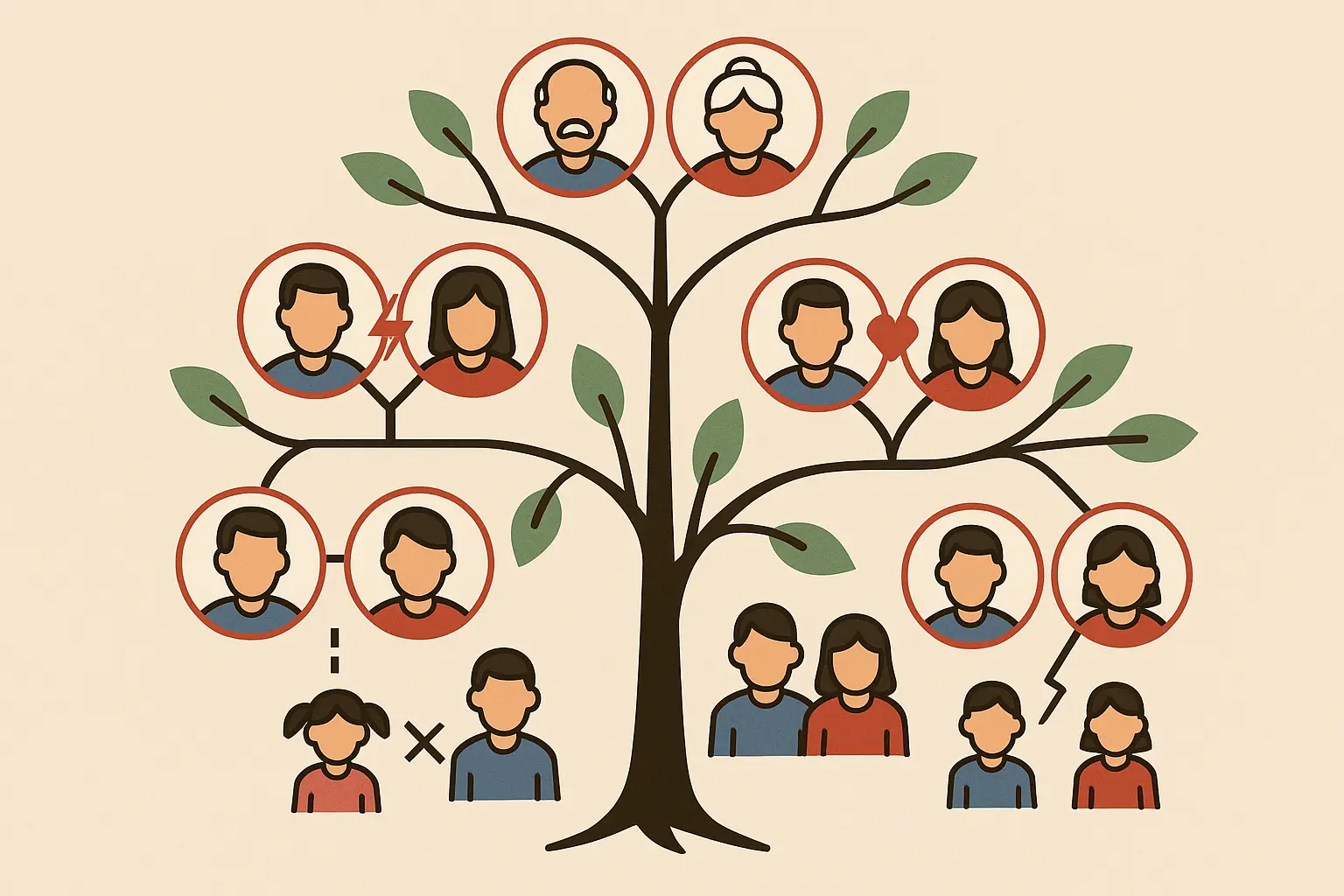
6. The Inheritance
Nothing brings out family dysfunction quite like dividing up a deceased parent’s stuff. This story follows three adult siblings who thought they’d worked through their childhood issues until they have to decide what to do with the family home – and discover they remember their childhood very differently.
7. Coming Home
You know that successful friend who moved to the big city and only comes back for holidays? This story explores what happens when life forces them to move back home to take care of family, confronting all the relationships and dreams they left behind.
8. The Adoption
The adoption process can test even the strongest relationships, forcing couples to confront their deepest fears about parenthood, worthiness, and what makes a family. This story follows one couple’s journey through the emotional rollercoaster of trying to become parents while their marriage strains under the pressure.
9. Secrets Revealed
Every family has secrets, but what happens when they all come out during what’s supposed to be a happy celebration? This story explores how protecting people sometimes causes more damage than telling the truth, and how family dynamics can shift completely in a single conversation.
10. The Empty Nest
After spending 20+ years focused on raising kids, what happens when they leave and you’re left looking at your spouse like “So… who are you again?” This story follows a couple rediscovering their relationship and individual identities after decades of being defined primarily as parents.
Workplace/Professional Drama Stories
We spend more time with our coworkers than our families – which explains why office drama can get intense. These stories explore what happens when your professional life and personal values crash into each other like a bad Monday morning.
The HBO series “Succession” nails this perfectly by showing how family dynamics and corporate power struggles become completely intertwined. Every business decision affects family relationships, and every family fight impacts the company. It’s messy and complicated, just like real life when you can’t separate your personal and professional worlds.
11. The Whistleblower
Picture this: you discover your company is doing something seriously illegal, and you have to choose between keeping your job and doing the right thing. This story explores the very real consequences of moral courage, because speaking up doesn’t always lead to a feel-good ending.
12. The Mentor’s Dilemma
What happens when helping someone else’s career might destroy your own? This story follows an experienced professional who has to choose between supporting a promising younger colleague and protecting themselves when office politics turn vicious.
13. The Startup Dreams
Remember when you and your friends had that brilliant business idea that was going to change everything? This story explores what happens when that dream actually starts working – and success threatens to destroy the friendships that made it possible.
14. The Final Performance
An aging theater director faces the end of their career while trying to mount one last production that will secure their legacy. It’s about artistic passion, the fear of becoming irrelevant, and what happens when your body can’t keep up with your creative vision.
Personal Crisis Drama Stories
These are the stories that make us ugly-cry at 2 AM because they tap into our deepest fears about what could happen to us or the people we love. They’re about those moments when life completely changes course and we have to figure out how to keep going.
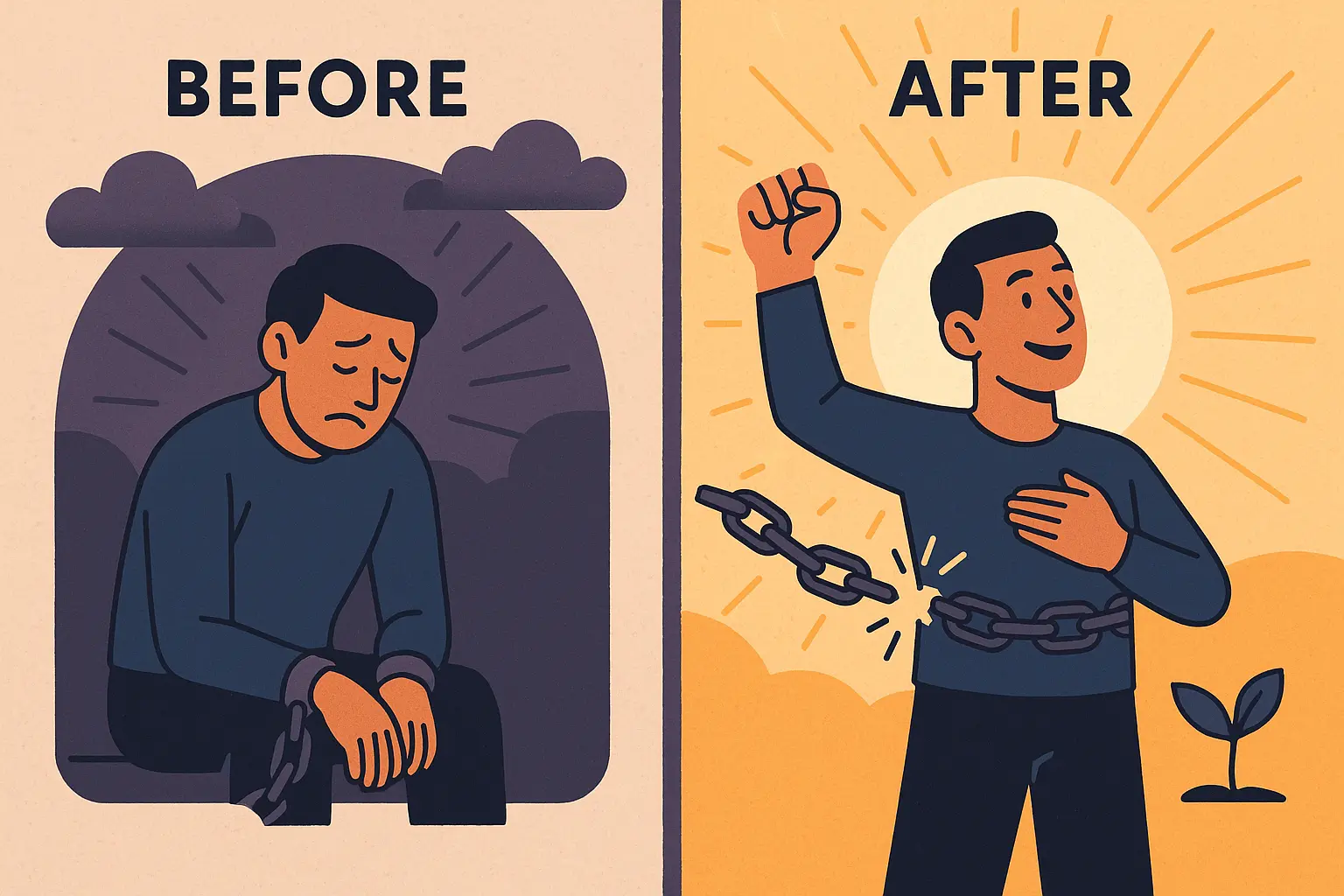
15. The Diagnosis
Getting a serious medical diagnosis is like having your life split into “before” and “after.” This story follows a young parent trying to navigate treatment while protecting their family from despair, exploring how illness affects entire family systems and what strength really means.
16. The Accident
A drunk driving accident forces both the person who caused it and the victim’s family to confront impossible questions about guilt, forgiveness, and whether redemption is possible. It’s about how one moment of poor judgment can ripple through multiple lives for years.
17. The Intervention
Staging an intervention for a loved one’s addiction often reveals that the whole family has been enabling the problem. This story explores the complicated nature of love, help, and how sometimes the people trying to save someone are part of the problem.
18. The Identity Crisis
What happens when you’re 45, successful by every measure that matters to other people, and suddenly realize you have no idea who you actually are? This story follows someone’s messy journey toward authenticity, even when it threatens everything they’ve built.
Historical/Period Drama Stories
Sometimes the best way to understand today’s problems is to look at how people dealt with similar stuff decades ago. Plus, there’s something oddly comforting about realizing humans have always been messy and complicated.
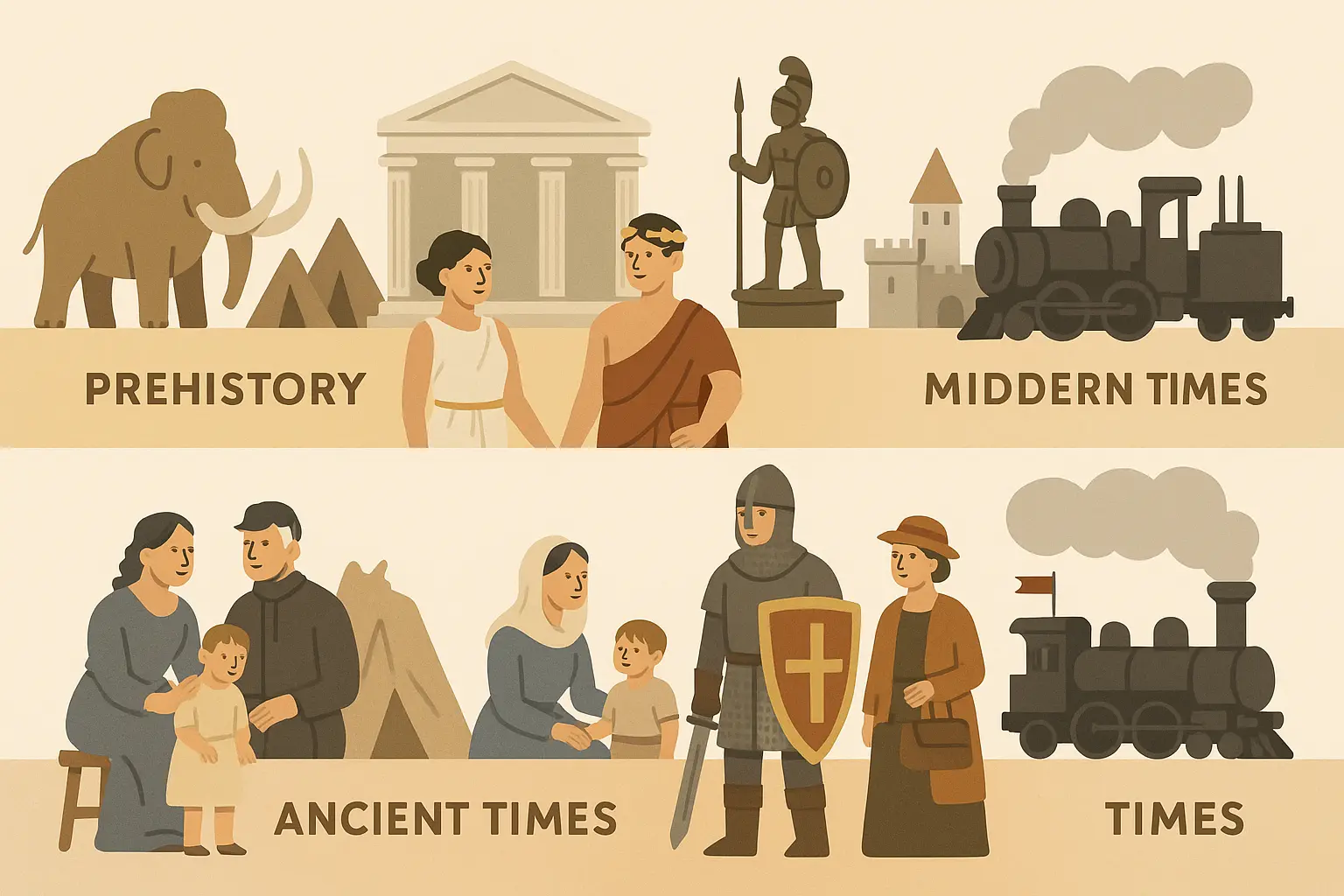
19. Letters from the Front
World War II correspondence between a soldier and his wife reveals what happens when couples are forced apart by circumstances beyond their control. It’s about love surviving separation, women discovering their own strength, and how war changes everyone it touches, not just the people fighting.
20. The Freedom Riders
This story follows a young activist joining the civil rights movement in the 1960s, facing real violence while staying committed to nonviolent resistance. It explores how ordinary people find extraordinary courage and what it costs to fight for what’s right.
21. The Great Depression Family
A farming family during the Dust Bowl era faces an impossible choice: abandon the land their family has worked for generations or stay and risk losing everything to drought and economic collapse. It’s about resilience, tradition, and what happens when the world changes faster than you can adapt.
22. The Immigrant’s Journey
Following a family’s experience arriving at Ellis Island in the early 1900s, facing discrimination while chasing the American Dream. This story explores hope, perseverance, and cultural identity while showing how immigration experiences shape families for generations.
Psychological Drama Stories
Fair warning – these stories will mess with your head a little. But in a good way. Like when you finish a really good book and spend the next three days thinking about it.
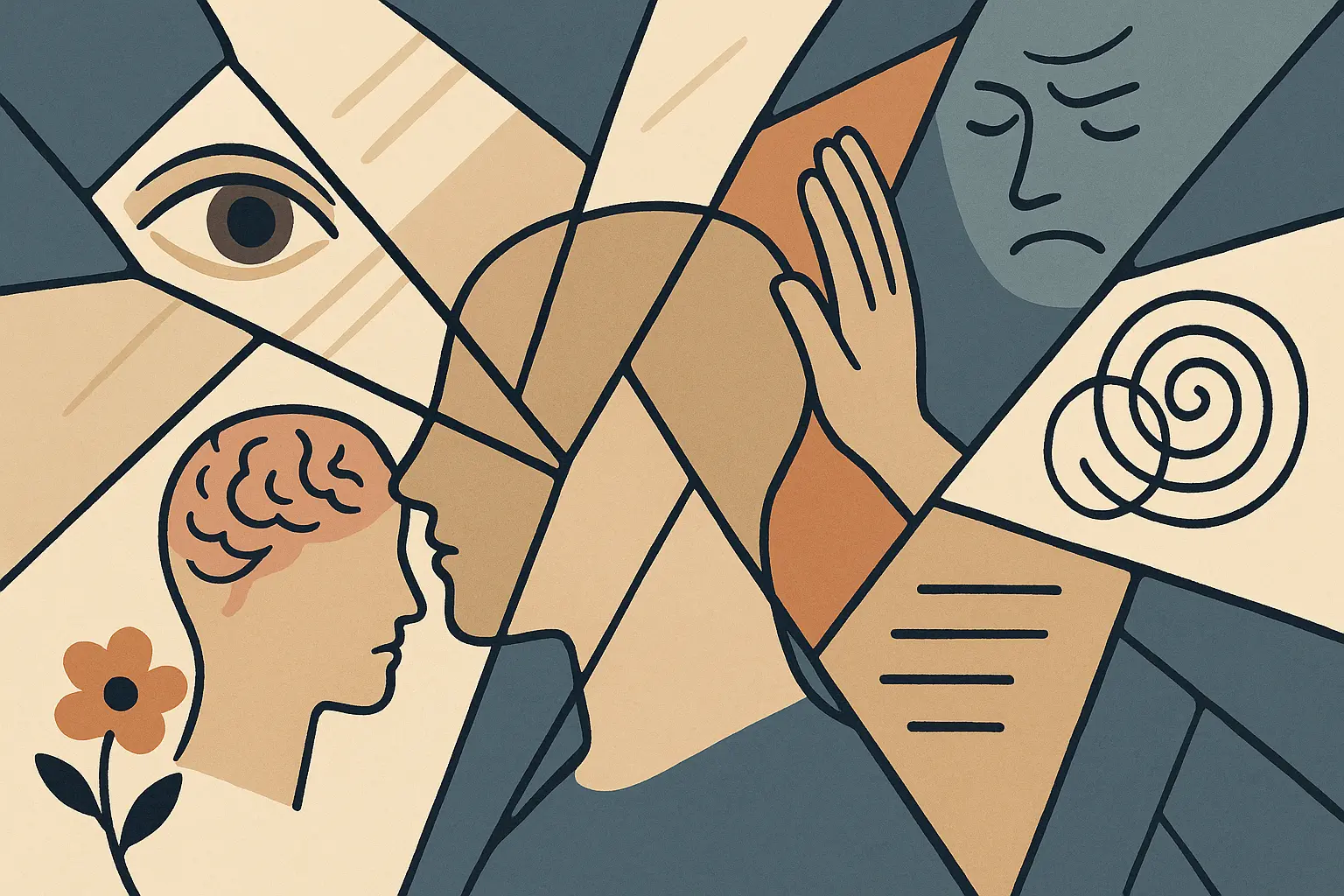
23. The Memory Palace
What happens when someone with early-onset Alzheimer’s tries to hold onto their most important memories while their family struggles to accept the diagnosis? This story explores identity, memory, and what remains of us when our minds start to fade.
24. The Therapist’s Session
A therapy session becomes a psychological battle of wills, forcing both patient and therapist to confront their own barriers to healing. It’s about the complexity of therapeutic relationships and how the people trying to help us sometimes need help themselves.
25. The Unreliable Narrator
Told from the perspective of someone experiencing a psychological break, this story forces readers to question what’s real and what isn’t. It’s about mental health, perception, and the challenge of distinguishing between someone’s subjective experience and objective reality.
Detailed Analysis and Examples
Looking at specific examples from these categories shows how the best dramatic storytelling creates those moments where you forget you’re watching fiction. These breakdowns reveal how opening scenes, character relationships, and story structure work together to hook audiences from the first minute.
Learning from established short story examples provides valuable insights into how successful dramatic narratives achieve emotional impact within condensed formats.
Contemporary Social Drama Examples
“The Digital Divide” could open with a teenager trying to submit homework on a phone with a cracked screen while their mom counts change for the electric bill. “Last Call” might start with a bartender polishing the same glass while watching construction crews tear down the building across the street. These visual contrasts immediately establish the central conflicts without needing exposition.
Family Drama Complexity
“The Inheritance” and “Coming Home” work because they tap into those universal family dynamics we all recognize. The successful sibling who “escaped” versus the one who stayed home. The childhood bedroom that’s now a storage room. These details feel specific but resonate universally.
Application of Selection Criteria
Here’s how these stories measure up against our six essential criteria, and why some work better than others:
|
Drama Story |
Narrative Depth |
Contemporary Relevance |
Character Development |
Conflict Structure |
Thematic Coherence |
Accessibility |
|---|---|---|---|---|---|---|
|
The Digital Divide |
High – economic inequality hits families hard |
High – every parent dealt with remote learning |
Strong – mother’s sacrifice feels real |
Multi-layered – personal, economic, systemic |
Strong – inequality woven throughout naturally |
High – universal parental concerns |
|
The Whistleblower |
High – moral complexity everyone can relate to |
High – corporate scandals are everywhere |
Strong – courage versus security is relatable |
Multi-layered – personal, professional, legal |
Strong – integrity themes feel natural |
Medium – needs some professional context |
|
The Memory Palace |
Very High – explores what makes us “us” |
Medium – aging population makes it relevant |
Unique – watching someone lose themselves |
Internal focus – psychological and family |
Very Strong – memory/identity themes central |
High – everyone fears losing their mind |
What Makes These Stories Work
The best stories in this collection excel because they make big issues feel personal. “The Climate Refugee” isn’t really about climate change – it’s about what happens when “home” disappears. “The Whistleblower” isn’t about corporate corruption – it’s about the cost of doing the right thing.
Why Some Stories Hit Harder
“The Diagnosis” and “The Accident” work because they tap into fears we all carry around. “The Empty Nest” and “Coming Home” resonate because they address transitions most people either have experienced or will experience. The most effective dramas feel both specific and universal.
Real-World Applications for Content Creators
Here’s where it gets cool – once you understand why certain stories grab us, you can use these tricks in your own writing. Whether you’re posting on Instagram, pitching your boss on a new project, or trying to get people to care about a cause, good storytelling is good storytelling.
A nonprofit organization figured this out when they stopped showing statistics about homelessness and started following one family’s journey instead. They created multiple perspectives – the family, social workers, volunteers, community members – letting people see the issue from different angles while staying emotionally connected to real people. Donations increased 40% because people connected with the story, not the numbers.
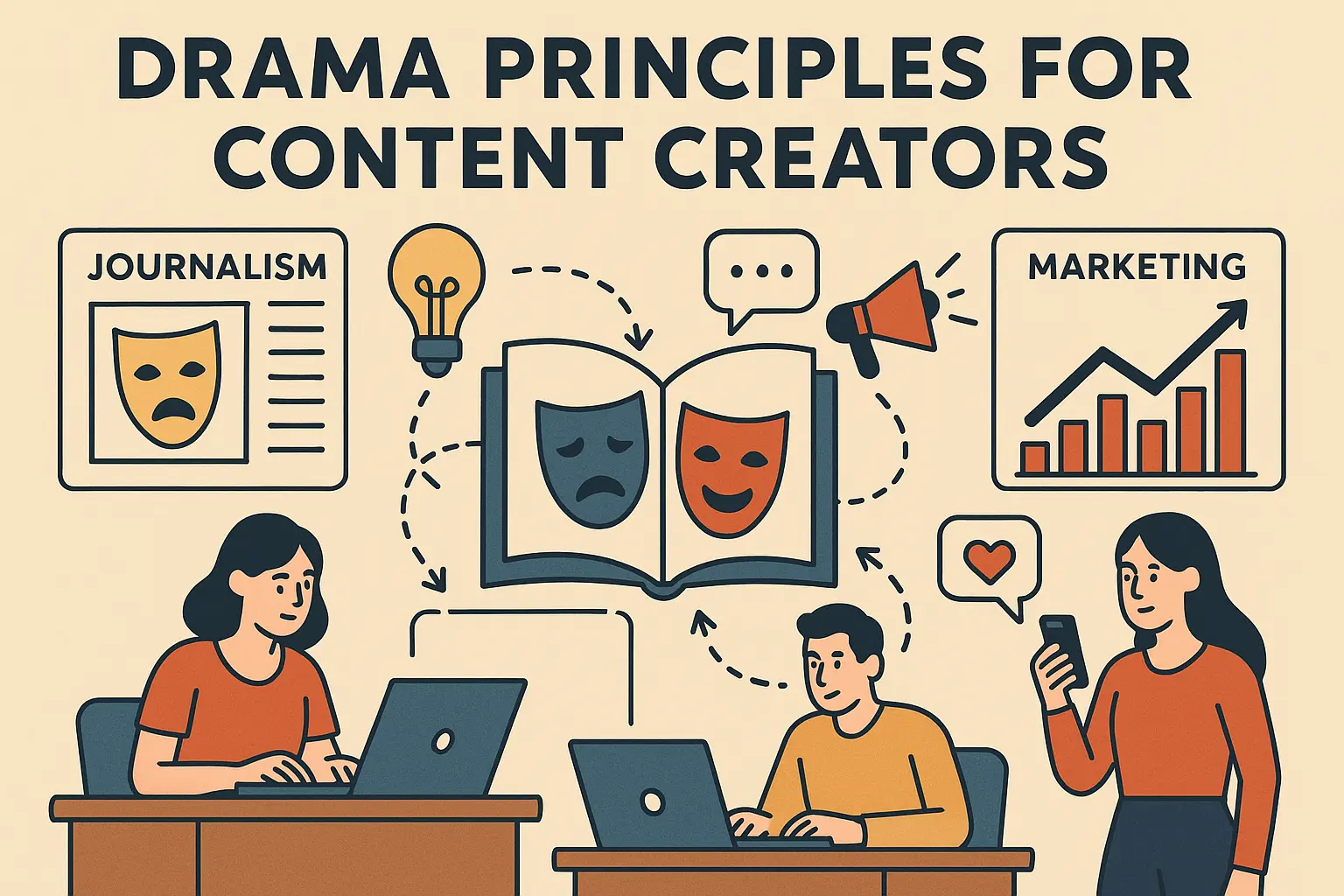
Lessons for Modern Storytellers
The most successful storytellers throughout history understood these dynamics intuitively, but now we have data that proves what works and why. You don’t have to rely completely on gut instinct anymore – you can use proven principles to craft content that actually connects with people.
Exploring diverse story examples helps writers understand how different narrative approaches can achieve dramatic impact across various formats and genres.
How Nairrate Can Transform Your Drama Storytelling
Whether you’re inspired by family dysfunction, workplace politics, or psychological complexity, crafting powerful drama requires the right creative foundation. Nairrate’s AI-powered story generation tools can help you develop emotionally resonant dramatic narratives that actually connect with audiences instead of just checking boxes.
Mastering first-person story examples can particularly enhance psychological dramas by creating intimate connections between readers and complex characters experiencing internal conflicts.
Ready to create drama that people will actually remember? Explore Nairrate’s suite of AI-powered writing tools and discover how they can help you craft stories that stick with readers long after they’ve finished reading.
Final Thoughts
At the end of the day, we love drama because it reminds us we’re not alone in this weird, complicated thing called being human. Whether you’re dealing with family stuff, work drama, or just trying to figure out who you are, there’s probably a story out there that gets it.
What makes these 25 drama stories particularly compelling is their ability to balance what’s happening right now with those timeless human truths we all recognize. The best dramatic stories work like good friends – they understand what you’re going through and help you feel less alone in dealing with it.
The research on character network complexity backs up what many of us already knew from our own binge-watching experience – we crave stories that challenge us intellectually while making us feel something real. Multiple character groups, interconnected storylines, and complex relationships create the kind of content that transforms passive viewers into people who pause the show to text their friends about what just happened.
That’s the real magic of drama – it doesn’t just entertain us, it helps us process our own lives. And in a world that often feels overwhelming and disconnected, that’s exactly what we need.



Add comment